Home / Weather CATs / CATs Manuals / Communicating with Catastrophe Survivors
Communicating with Catastrophe Survivors
Enhancing Insurance Claims Information Delivery
This document was originally produced by the
Joint-Trades Post Disaster Communications Task Force
Participating organizations were:
PROPERTY LOSS RESEARCH BUREAU PROPERTY CLAIMS SERVICES PROFESSIONAL INSURANCE AGENTS INSURANCE INFORMATION INSTITUTE FEDERAL INSURANCE ADMINISTRATION
Table of Contents
Introduction – click here
Chapter 1: Effective Information Delivery Mechanisms – click here
Chapter 2: Needs of the Catastrophe Survivor – click here
Appendix A: Personal Lines Insurance Information Handouts – click here
Appendix B: Business Insurance Information Handouts – click here
Severe Thunderstorms
It is the severe thunderstorm that produces the tornado, large hail, and high wind damage to structures, as well as frequent lightning strikes that cause most property damage. All thunderstorms are dangerous. Though small in size, compared to a hurricane for example, they are extremely powerful. The National Weather Service rates approximately 10,000 thunderstorms as severe each season.
Introduction
Communication with policyholders is a critical element in delivery of excellent service. Those insureds familiar with their insurance policy will need guidance immediately after a disaster. Those insureds unfamiliar with their insurance policy will need additional information and support following any loss…especially a catastrophe, such as a hurricane or tornado. You as a local insurance agent, are in a key position to provide accurate insurance information to both the official and unofficial, but familiar, community leaders following a catastrophe. Insurance agents are tuned-in to the workings of their community. As a sales person, an agent makes thousands of contacts with people in the community during the course of a career. The agent is frequently well known and often considered a credible source of information on a service most consumers find confusing — insurance. Key community leaders will welcome claim information from a local agent following a disaster.
This communications guide evolved from a recognition that the property insurance industry could extend its post catastrophe communications efforts an additional step, to more effectively reach policyholders who have survived a disaster. Traditionally, insurance agents and companies have communicated with policyholders via the mass media. Various formats have been employed, such as radio advertisements, print advertisements in newspapers, appearances on broadcast talk shows, delivery of general news releases, and so on. These well-executed and effectively-delivered messages were heard and read by many people, but often the catastrophe’s survivors were too busy recovering to listen to radio, watch television, or read the newspaper. When you think about the busy situation in which the survivors find themselves, it is logical to conclude that some additional method of communications should be utilized to reach these people with critically important and timely information.
Many hands will complete the task faster and make it easier to do. So, seek assistance from other agents in the disaster area. Ask them to share this information with the community leaders they know. Using a network of agents across the disaster area will get this information to more people, faster, and without an undue burden on any one person.
The University of Delaware’s Disaster Research Center (DRC) staff met with the Task Force and helped it identify additional communications steps. Research Professor Dr. Russell Dynes of the DRC told us that years of sociological research into the behavior of disaster survivors has revealed they turn to familiar and trusted information sources for all sorts of data during their recovery. These information sources may be the recognized official sources, such as the Department of Emergency Services, the mayor, or the governor. However, they also get information from unofficial, but trusted and familiar people such as the clergy, a neighbor, or a community leader. As people cast about seeking information from their familiar contacts, misinformation sometimes results. The informal network of familiar information providers can be another excellent conduit of accurate and timely catastrophe insurance information. Effectively utilized it can help control insurance misinformation and derail disinformation campaigns.
To further help your understanding of the communications goals of the Joint Trades Post Disaster Communications Task Force, the following is provided:
Task Force Mission Statement: To enhance policyholder catastrophe claims communication by reaching disaster survivors through existing community grass-roots communications systems.
Implementation of Mission: Through the utilization of the in-place, grass roots, community communications network to augment the traditional communications channels between the policyholder and the insurance industry.
The Target Audience: Property/casualty insurance policyholders who have survived a disaster
Role of local agents: To utilize their community contacts to enter the community communications networks in the disaster area with claims information that will reinforce insurance recovery information disseminated through traditional channels. By sharing the prepared information in this kit, the local agents will help augment the insurance information which will also be provided through the customary contacts between policyholders and agents, policyholders and adjusters, as well as policyholders and companies via insurance information centers and the media.
Hopefully, a disaster will never occur in your community. However all of us who work in the insurance business know a catastrophe is possible and that it’s best to be prepared to meet the crisis. We hope this information will be of use to you and your community if the need should arise.
The Joint-Trades Post Disaster Communications Task Force
Hugh O. Strawn, Chair
Chapter 1
Effective Information Delivery Mechanisms
Typically, this is a high-stress time for the policyholder who is looking for assurance that help is available. Since they’ll look for all types of information, including insurance information, from trusted community resources, the Task Force recommends having already-established community organization contacts, so accurate insurance information may be easily disseminated.
Who Can Help Disseminate Post-Disaster Insurance Information
People who are potentially excellent key local insurance information conduits are as varied as the communities in which they live and work. You, as the local agent, should be able to easily identify likely people. If a profile were to be developed to describe these resources, it might read as follows:
The person to whom disaster survivors might turn to for recovery information will be someone who is aware, informed, and knowledgeable. He or she might be a mechanic or a physician, a homemaker or an executive, a teacher or a member of the clergy. This individual is someone to whom people turn for leadership and guidance within the community when there is no disaster. The person is one of the damaged community’s opinion-makers.
The profile shows there is no sure-bet formula for determining these familiar and trusted community members. It might be the mayor, and then it might not. It might be the president of a homeowners association, and then it might not. It might be a member of the clergy, and then it might not. As a sales person who has been prospecting the community for leads, you probably have developed a keen sense of who makes things click in each of the individual communities within the greater community.
Successful insurance agents are typically well-known and respected in the community. They are active in a variety of community organizations. And they market their various products throughout the community, which helps spread their visibility as well as credibility as an insurance expert. Utilizing those community contacts, local agents are in the best position to create a conduit for accurate insurance information into community organizations, which can in-turn pass the information on to their members or contacts. Agency employees also have considerable contact within the community which may be utilized to deliver insurance information.
Following a catastrophe you can contact those organizations and their leaders to offer help for them in answering the insurance questions which may come their way. Doing so will help get accurate and timely insurance information to the disaster’s survivors.
Identify Before Disaster Strikes
The Task Force recommends you identify these potential contact groups and their leaders in advance of a disaster. File their name, address, and telephone numbers in your agency’s catastrophe kit.
The types of organizations which may be willing to provide such information are endless. They can be generalized as follows:
- Service clubs such as the Rotary Club, the Lions Club, the Kiwanis Club and so on;
- Fraternal organizations such as the Knights of Columbus, the Masons, the Sons of Norway, Shriners Clubs, the American Legion, the Veterans of Foreign Wars, and so on;
- Churches within the community;
- Charitable organizations such as the American Red Cross and the Salvation Army;
- Specially formed groups such as homeowners associations, Parent Teacher Associations, local community issue-oriented groups, and so on;
- Politicians can serve as an excellent distribution system. Frequently senators and representatives are contacted by constituents who need information or help. They welcome and will distribute insurance information following disasters; and
- Government established Disaster Assistance Centers typically become a community focal point for information and are a natural for distribution of insurance information.
After the disaster, get in touch with them, inform them of the role they may be involuntarily thrust into by the people they lead and offer them informational support so they will be comfortable with those responsibilities.
Assistance You Can Provide
Community organizations always swing into action following a disaster. They hold fund-raisers, help with clean up, and help with rebuilding to mention but a few of their activities. The local agent can augment the important mission of those organizations by providing general insurance information for distribution throughout the community.
Your support could include providing
- Handout information
- Question and answer sheets
- Lists of resource telephone numbers people could call for assistance
- Meeting with groups to talk about the insurance issues and answer their questions
- You are demonstrating a commitment to help the community resources deal with the post-catastrophe insurance issues.
Other Insurance Industry Resources to Assist Community Leaders
The community leaders will need some assistance from you, as well as others within the insurance industry, in meeting these responsibilities. Available to help are agents, adjusters, and public relations staffers. Each can provide information and assistance to the policyholders in the communities affected by the disaster.
Agents
Insurance agents are often in the best position within a community to provide general coverage information for survivors of the disaster. Most consumers are unaware that an agent representing one insurance company may not be an expert on the coverages offered by another insurance company. Experience has demonstrated that following a disaster most consumers in need of insurance information don’t care if the person providing the initial general coverage information is an expert on their company’s coverages. The basic information needed by disaster survivors is what coverages are typically provided in a homeowners policy. Any agent can authoritatively provide that information.
Adjusters
Independent and company insurance adjusters from the community are often in an excellent position to provide similar general coverage information. With their field experience in claims handling, they have the expertise to provide a unique insight into the entire claims process.
An agent or an adjuster can often reach many people with general insurance information by addressing meetings that are often held following a disaster in a community. Their credibility is they are introduced by a community leader or the organizer of the meeting.
Pre-Event Literacy
Pre-event insurance information will help policyholders who survived the event to have a good grasp on the coverages that protect their property and possessions. Insurance information techniques that are often effectively employed by agents at a community level include:
- Information pieces on coverages distributed at the beginning of hurricane season or tornado season;
- Specially designated weeks, such as National Fire Prevention Week, can be utilized to call clients’ attention to coverage issues; and
- Specific threats such as a Hurricane Watch or Warning that affects your community or your clients can be used as a vehicle to disseminate pre-event insurance information.
Chapter 2
Needs of the Catastrophe Survivor
The survivors’ immediate needs will center on the survival and protection of the family. This is a period of unprecedented disruption in their lives. They need some stability and their Homeowners insurance policy’s Additional Living Expenses provisions can help them achieve it. Getting that basic information into the community is important, because it can serve as a reminder to insureds that they have an option to a public shelter. It also helps take some of the pressure off private and governmental emergency welfare agencies.
Once the policyholder’s life is stabilized, he or she will be ready to accept and process information regarding the protection of their undamaged property, as well as recovery from the effects of the disaster. The time-frame for a survivor to need this information will, of-course, vary from person-to-person. Some will be able to handle the information soon after the event, while others will require more decompression time. Experience has shown the following personal lines insurance-related topics are of use to disaster survivors:
- Immediate Funds Available
- Steps to Take Immediately After a Disaster
- Suggestions on How to Manage Your Insurance Claim
- Cleaning up the Mess and Rebuilding
- Disagreements – How They’re Resolved
- Which Insurance Policy Pays for Damages to Your Vehicle?
The Task Force reviewed decades of disaster experience and developed key information points for each topic. That information follows for your review. Appendix A, Personal Lines Insurance Information Handouts, page 11, includes the same topics and key points, but formatted for easy copying for rapid distribution in a community affected by a disaster.
Immediate Funds Available
· Funds are available to pay for the extra costs of a hotel room and meals if you have been displaced from your home by an event that is covered by your Homeowners policy, such as a tornado, a hurricane, or a fire.
· Immediately contact your agent or insurer to report your claim and begin the steps to secure an advance Additional Living Expense payment.
· Keep accurate and complete records of your additional living expenses, so you can document them as part of your insurance claim.
· Additional Living Expense reimburses you for costs above and beyond your normal daily expenses.
· Remember, this is an advanced payment of your overall claim. It will be accounted-for by the adjuster.
Steps to Take Immediately After the Disaster
· Preserve the damaged property for examination by the insurance adjuster.
· Protect the damaged property from further damage.
· Report the loss to your insurance agent or insurance company immediately.
Suggestions on How to Manage Your Insurance Claim
· Carefully read the policy to review the coverages you purchased. Sometimes insurance policies are lost in a disaster. Don’t worry if you can’t find it.
· Keep an accurate and complete record of your additional expenses since the disaster.
· Prepare an inventory of the personal property that has been damaged or destroyed.
· If your property must be moved or changed before the adjuster gets there, document the damage with photographs or videos.
· Keep copies of all documents related to the insurance claim for future reference.
Cleaning up the Mess and Rebuilding
Meet with your adjuster and make sure everything necessary has been seen and that it’s okay to begin removing the damaged and destroyed property as part of the clean up. If the property must be moved before the adjuster sees it, document the damage with photos or video.
· Contact a reputable contractor who possesses the licenses that may be necessary to do construction work in your community.
· Get estimates from a contractor, or competing construction firms, on repairing the damaged structure or rebuilding the destroyed structure, as it stood before the disaster. The estimate should be detailed so that you and the adjuster know exactly what the contractor intends to do and the cost for each item.
· Present the inventory and construction estimates to the adjuster as soon as possible.
· Arrange a meeting between the contractor and your adjuster to review the estimates and arrive at an agreement.
· Proceed with the project, monitoring construction progress as you would if the bills were being paid by you, instead of your insurance company.
· In some instances, the adjuster may write an estimate and offer you a settlement on this figure. It is perfectly safe to accept this settlement. Accepting it will not prevent you from making claim for additional damage discovered later during repairs.
Disagreements – How They’re Resolved
If you disagree about the claim with your insurance adjuster, the person from your insurance company who works with you to determine how badly your property was damaged and how much it will cost to repair or replace, there are several options available for you to pursue:
· Contact the adjuster to review the dispute and seek a solution.
· Contact the adjuster’s supervisor to review the dispute and seek a solution.
· Contact your agent to review the dispute and ask for assistance in resolving it.
· Contact the state insurance commissioner’s office to review the dispute and seek assistance in resolving it. Your adjuster can provide you with the address and phone number.
· Consider using the provision of your policy that gives you the right to appraisal of the dispute.
· Consider using arbitration services available in many states to resolve disputes.
· Contact legal counsel for assistance.
· In some areas following a disaster, you may be approached by a public adjuster offering to represent you for a fee, or a percentage of the settlement. You may wish to first try to reach a satisfactory settlement before paying someone. In most instances you will find the company adjuster cooperative and reasonable.
Which Insurance Policy Pays for Damages to Your Vehicle?
If the vehicle is unlicensed and is used only around your property, damage will typically be covered by your Homeowners policy. However, you may have additional specialized policies that provide expanded coverages for vehicles such as all terrain vehicles, boats, and snowmobiles. If the vehicle is licensed for use on public roads, coverage will be provided by your automobile insurance policy’s optional comprehensive section.
Appendix A
Personal Lines Insurance Information Handouts
The following pages contain information that may be reproduced and provided to the community resources for reference in answering insurance related questions. They may also be reproduced and made available directly to consumers. You are free to reproduce and distribute this information as necessary to meet the local communication needs.
Immediate Funds Available
Important Points
· Funds are available to pay for the extra costs of a hotel room and meals if you have been displaced from your home by an event that is covered by your Homeowners policy, such as a tornado, a hurricane, or a fire.
· Immediately contact your agent or insurer to report your claim and secure an advance Additional Living Expense payment.
· Keep accurate and complete records of your additional living expenses, so you can document them as part of your insurance claim.
· Additional Living Expense reimburses you for costs above and beyond your normal daily expenses.
· Remember, this is an advanced payment of your overall claim. It will be accounted-for by the adjuster.
Steps to Take Immediately After the Disaster
Important Points
· Preserve the damaged property for examination by the insurance adjuster.
· Protect the damaged property from further damage.
· Report the loss to your insurance agent or insurance company immediately.
Suggestions on How to Manage Your Insurance Claim
Important Points
· Carefully read the policy to review the coverages you purchased.
· Keep an accurate and complete record of your additional expenses since the disaster.
· Prepare an inventory of the personal property that has been damaged.
· Document the damage with photographs or videos.
· Keep copies of all documents related to the insurance claim for future reference.
Cleaning up the Mess and Rebuilding
Important Points
· Meet with your adjuster and make sure everything necessary has been seen and that it’s okay to begin removing the damaged and destroyed property as part of the clean up.
· Contact a reputable contractor who possesses the licenses that may be necessary to do construction work in your community.
· Get detailed estimates from a contractor, or competing construction firms, on repairing the damaged structure or rebuilding the destroyed structure, as it stood before the disaster. The estimate should be detailed so that you and the adjuster know exactly what the contractor intends to do and the cost for each item.
· Present the inventory and construction estimates to the adjuster as soon as possible.
· Arrange a meeting between the contractor and your adjuster to review the estimates and arrive at an agreement.
· Proceed with the project, monitoring construction progress as you would if the bills were being paid by you, instead of your insurance company.
Disagreements – How they are Resolved
Important Points
If you disagree with your insurance adjuster about the claim, there are several options available for you to pursue:
· Contact the adjuster to review the dispute and seek a solution.
· Contact the adjuster’s supervisor to review the dispute and seek a solution.
· Contact your agent to review the dispute and ask for assistance in resolving it.
· Contact the state insurance commissioner’s office to review the dispute and seek assistance in resolving it.
· Consider using the provision of your policy that gives you the right to appraisal of the dispute.
· Consider using arbitration services available in many states to resolve disputes.
· Contact legal counsel for assistance.
Which Insurance Policy Pays for Damages to Your Vehicle?
Important Points
· If the vehicle is unlicensed and is used only around your property, damage will typically come from your Homeowners policy. However, you may have additional specialized policies that provide expanded coverages for vehicles such as all terrain vehicles, boats, and snowmobiles.
· If the vehicle is licensed for use on public roads, the damage will typically come from your automobile insurance policy’s optional comprehensive section.
Questions and Answers
The following pages contain questions often asked by people about their personal lines insurance policies following a disaster. These pages have been specially prepared for reference and use by some of the non-insurance people you may identify as commuity leaders who might possibly be in a position to provide accurate insurance information. However, the use of these Q and A sheets is limited only by your imagination.
The subjects are divided into free-standing sections to allow you to select those subjects on which you may wish to focus, depending on the type of disaster. The topics are identical to the preceding personal lines handout pages.
· Your Insurance Claim – Understanding insurance terminology, some of your coverage, and what your adjuster will do
· Cleaning Up the Mess and Rebuilding
· Disagreements – How They’re Resolved
· Which Insurance Policy Pays for Damages to Your Vehicle?
Questions Often Asked by Policyholders and Answers from Insurance Experts
Your Insurance Claim
Understanding insurance terminology, some of your coverage, and what your adjuster will do
The following questions are frequently asked by homeowners following a catastrophe. Flooding is often part of the cause of damage to a house during a natural disaster. Because the Homeowners Insurance policy provides no coverage for flood damage, the homeowner must have purchased a separate National Flood Insurance Policy. There are important coverage differences between these two policies. The answers to many of the following questions reflect the policy conditions of both the typical Homeowners Insurance Policy and the National Flood Insurance Policy.
Q: What is Actual Cash Value (ACV), as it relates to Homeowners insurance?
A: The ACV of the house is the real value of the structure. The value of the land is not included. It is determined by subtracting depreciation, caused by age and use, from the replacement cost of the building.
Q: What is replacement cost, as it relates to my Homeowners insurance?
A: The House: Replacement cost insurance covers the actual replacement of the building, or the damage portions of the building, to its pre-loss condition following an insured loss. There is usually a limit as to how much the insurance policy will pay, however. That limit is determined by the policyholder at the time the insurance policy is purchased. Many insurers offer “replacement cost” coverage for those structures that qualify by meeting stringent underwriting requirements. This type of coverage requires the policyholder to buy enough insurance to cover at least 80% of the replacement value of the house. The damage to the structure will be covered up to the policy limits. The value of the land is not included.
The Personal Property: Replacement cost insurance covers the actual replacement of the insured residence’s contents. There is usually a limit as to how much the insurance policy will pay. It is usually a percentage of the of the insured value of the house. You will be required to verify replacement of the damaged or destroyed items. If you choose not to replace an item, the insurance policy will compensate you for the actual cash value, as explained above.
Q: What is Guaranteed Replacement Coverage, as it relates to Homeowners insurance?
A: The House: This policy will pay the cost to replace the house as it stood before the loss, even if the policy limits were not adequate. If rebuilding costs increase following the loss, this type of policy will cover the bill. This type of insurance typically requires the policyholder to purchase enough insurance to cover 100% of the replacement value of the house. The value of the land is not included.
Q: How do I determine the actual cash value (ACV) of my personal property?
A: First you should determine the replacement cost of the personal property damage at current prices. Then estimate the life expectancy of the item. Remember that things depreciate at different rates. The ACV is determined when depreciation is applied to the replacement cost using the following formula:
Replacement cost (-) Depreciation (=) ACV
Constructing an inventory will help reduce the time needed by your adjuster to settle the claim. An inventory sheet with the following four columns could be used to record the information:
1. Item description;
2. Replacement cost;
3. Date purchased; and
4. Remaining value.
You will fill out the first three columns and the fourth could be agreed upon by you and your adjuster. Your agent may be able to provide you with a booklet or a Website link to assist you with the process.
Q: How do I determine the actual cast value (ACV) of my structure?
A: Typically the ACV is considered the cost to replace the structure as it was at the time of the loss, less physical depreciation. Land values are not included, on the insured building on the land.
There are contractor, engineering, and architectural firms available to appraise your structure. They may also be able to give you an estimate of the cost per square foot to build a house in your area. This will help you calculate the replacement cost. Deduct physical depreciation from the estimated replacement cost to determine the ACV of your house. Remember that insured to the value of the building is the responsibility of the policyholder in most states. The primary responsibility of the agent and the company is limited to explaining fully the significance of how the building amount relates to the insurance to value principle and the replacement cost. However, some states have a Valued Policy law. In those states the policyholder can be paid the face amount of the policy if the building is destroyed in a specified manner, such as by fire or wind. Ask your insurance agent, adjuster, or insurance company to explain these principles to you.
Q: Why is my claim check for actual cash value (ACV) when I have purchased replacement cost coverage?
A: Your insurance policy probably contains conditions regarding the replacement of your house and your personal property. In most instances, you will not be paid the full replacement amount until the house is rebuilt or the personal property replaced. First you are paid the ACV of the structure and your personal property. When it is actually replaced as required in your policy, then your insurer will pay you the balance.
Q: Now that I am forced from my home, what emergency expenses are covered?
A: The Homeowners policy provides for the payment of Additional Living Expense (ALE) if the insured residence has been made unlivable because of damage from a covered peril as described in the policy. ALE will cover the increases in living expenses you must pay because of the covered loss until your house has been repaired or restored to a condition in which it can be occupied. Most policies will pay ALE up to a stated amount. The Homeowners policy will also reimburse you for any reasonable and necessary expense you had to pay for temporary repairs that protected your property from further damage following a loss.
Q: How is the value of my property determined?
A: The value sought is the structure’s replacement value, or what it will cost to rebuild as it stood at the time of the loss. The adjuster will inspect the property to gather important information needed in reaching a value. Facts the adjuster will take into consideration include the square footage of the house, the quality of the materials used in its construction, and the house’s special features, such as a fireplace. You can help the adjuster’s research if you can provide pre-loss photographs of the property and its construction.
Q: How long before my adjuster will get here?
A: You must report the claim immediately to the agent of the company. Adjusters will typically give the highest priority to the most serious claims. Under most circumstances an adjuster will contact you within 48 hours. Following an enormous disaster, affecting thousands of buildings, the adjuster may take longer to reach you. Be sure to let the agent, company, or adjuster know how to reach you if you have been forced from your house or are gone during the business day.
Q: When will my claim check arrive?
A: In some cases, when there is serious damage, you may receive an advance payment. Otherwise the speed with which the claims is paid will depend on the complexity of the claim, how quickly information is provided to the adjuster, and the overall claim activity generated by the disaster. When the adjustment process has finished most companies attempt to issue a claim check within seven to ten days.
Q: Do separate deductibles apply to my house and my contents?
A: Under your Homeowners policy one deductible will typically apply.
Q: Must I list all my personal property that was destroyed?
A: Yes. The Homeowners policy provisions require that you present an inventory of all items with their replacement cost. At some point you me be asked to sign a sworn Proof of Loss form verifying the items and costs.
Q: Out pet died in the storm. Is this covered?
A: No. There is a specific exclusion in the Homeowners policy. However there are special mortality insurance policies which may be purchased for animals such a livestock, horses, show dogs, and so on.
Q: Do I need a lawyer to provide legal advice?
A: It is up to you to determine if you wish to be represented by an attorney for a property claim. If a question arises about your legal liability to another party for damages, the Homeowners insurance policy may provide an attorney for you.
Q: My personal property is temporarily stored in my neighbor’s garage. Am I covered?
A: Under your Homeowners policy, the personal property is typically covered up to the full limit for personal property coverages, usually about 50% of the amount of insurance covering the house. This amount may vary from insurance
Q: I lost electrical power during the disaster, my freezer and refrigerator are off and the food is spoiled. Is the damage covered?
A: It depends on which Homeowners insurance policy you purchased. Some policies will pay for the loss you suffered when the food spoiled and others provide no coverage for such damage. Your agent or adjuster can tell you if your policy covers this type of damage.
Q: Will my insurance policy pay to rent an electrical generator, so I can get electrical power in my home?
A: No.
Q: Our appliances were damaged by the surges of electricity through the utility’s wires during the disaster. Is the damage covered?
A: No.
Questions often asked by policyholders and answers from insurance experts
Cleaning Up the Mess and Rebuilding
Q: My house has to meet new code requirements when it is rebuilt. Is that covered?
A:. Typically a Homeowners insurance policy will cover the cost to rebuild the house as it was prior to being damaged. Modern materials and construction techniques are often employed in the rebuilding process. But specific building code requirements, which have been adopted since your house was built, are typically not covered under the standard Homeowners policy, unless it has been endorsed for Ordinance or Law coverage.
Q: Does the house have to be rebuilt exactly the same as the old one?
A. No. Your new house may look different than the destroyed structure, as long as the total amount doesn’t exceed the cost of reproducing the building as it stood before the loss. If you wish to upgrade the structure, which people often do when rebuilding a destroyed home, you will have to pay the additional cost yourself. Contractors will often include upgraded features at a minimal cost because of the project’s scale.
Q: How do I locate a reputable contractor?
A: Begin by seeking a recommendation from someone whose judgment you trust. Often a friend, neighbor, or relative can refer you to a good contractor. Another source of information is the local office of the National Home Builders Association or the National Home Remodelers Association. The local building official’s office may be able to provide you with a listing of licenses contracting firms that may legally work in your community. Your insurance adjuster may also be able to recommend some qualified contractors that can assist with your rebuilding.
Q: I have debris to be removed from my property. Is that covered?
A: Debris removal from the insured property is covered, if the debris was generated by a covered cause.
Q: Debris from my neighbor’s house blew into my yard. Is that covered?
A. Debris is often all mixed up following a catastrophe and it’s impossible to tell which debris is insured by what company. What usually happens is that debris removal from your property is covered by your Homeowners insurance policy, no matter where the debris originated.
Q. The wind blew trees down on my house and onto my yard. Is that covered?
A. It depends on your policy. Some Homeowners insurance policies will pay up to a specified amount for removal of the tree from your insured structures, such as a house, detached garage, a fence, or an in-ground swimming pool. Removal of trees from the yard is not normally covered by Homeowners insurance. Check with your adjuster or insurance agent to determine your coverage. Often the community’s public works department will haul the trees away if the property owners can get them to the curb or roadway for pickup by heavy equipment.
Q: Will my Homeowners insurance pay for damage caused by a flood?
A. The Homeowners insurance policy covers water damage caused by such things as broken pipes or rain pouring through windows broken out by high winds. It does not cover damages caused by flooding such as ground water runoff, overflowing lakes and streams, and so on. Coverage for flooding is available, but you must purchase a policy from the National Flood Insurance Program (NFIP), which is separate from your Homeowners insurance policy.
Q: Flooding caused my sewers to back up. Is that covered?
A: Sometimes. Some policies will cover sewer backup, but most Homeowners policies do not provide this coverage. Read your policy, check with your agent or your adjuster to determine if you have this coverage.
Disagreements – How They’re Resolved
Q. What happens if my adjuster and I cannot agree on the amount of damage? What alternatives are available?
A. Insurance claims adjusters are highly trained professionals. They aim to satisfy the consumer, but occasionally disagreements arise. Work with your claims adjuster to resolve a dispute resulting from a claim. Determine exactly how the adjuster has computed the damages and subsequent claims payment. Then, if you still disagree, call your insurance agent who can help you investigate the problem and possibly help negotiate a more satisfactory offer. Read the terms, conditions, and loss adjustment procedures of your Homeowners insurance policy. The terms of your policy will spell out whether the settlement is to be based on a replacement cost, actual cash value, or stated value basis. Following are brief descriptions of cash settlement options:
Replacement Cost – pays the amount needed to repair or replace the damaged or destroyed property with new goods and materials of similar or like quality at current prices.
Actual Cash Value (ACV) – is an amount equivalent to the repair or replacement cost of damaged or destroyed property at the time of the loss, minus depreciation.
Stated Value – The policyholder and the insurance company agree before a loss on the value of the property. The insurer will pay the claim for damages based upon this agreement.
The appraisal clause of your Homeowners insurance policy is designed to help resolve conflicts that may occur during the settlement process. You must formally request the use of the appraisal clause. You will pick a representative to gather facts and present your case, the insurance company representative will present its case. These two people will choose an independent third party to serve as an umpire.
Q: What happens if it costs more to fix the house than the adjuster has agreed to pay?
A: Unfortunately, Homeowners insurance will not always pay the full cost to replace or repair the damaged property. Your Homeowners insurance is subject to a deductible, which is the amount you agree to pay before the insurance pays. The type of insurance you purchase will also affect the settlement your company will pay to repair or replace damaged property. If your home is insured for replacement value, the full cost of repairs will be the basis for the claims settlement. If your home is insured for actual cash value (ACV), the cost of the damaged property minus depreciation for wear and tear will be the basis for the claims settlement. Your Homeowners insurance policy also has a requirement that you maintain enough insurance to cover the value of your house in order to be eligible for loss settlement on a replacement cost basis. This is known as insurance to value. Typically, insurance companies require that you insure your property for at least 80% of its total value. Other policies may require 100% of value be maintained in coverage. If your Homeowners insurance policy does not meet this requirement, you may collect the greater of Actual Cash Value or a portion of replacement cost, based upon the insurance to value requirement.
Q: What happens if the contractor finds some hidden damage that needs repair after I have agreed on the damage with my adjuster?
A: Every insurance agreement is based on good faith. If you have come to an agreement as to the amount of damage, but later discover additional damages, you should immediately stop all repair work and call the adjuster. Another visit will be scheduled by the adjuster to inspect the newly discovered damages and a new agreement will be determined.
Q: My agent didn’t notify me that my coverage had expired. What should I do?
A. It is highly unlikely that your agent or your insurance company would not contact you in the event that your policy was to expire. In some states, there are laws or regulations that determine exactly how the agent and company must notify customers when insurance policies are cancelled or expire. However, if you believe your policy expired without your knowledge, contact your agent and insurance company immediately to resolve this problem.
Q: I let my policy expire. What can I do to reinstate my coverage for this claim?
A. Your insurance company is not obligated to reinstate coverage if you allowed your policy to expire.
Which Insurance Policy Pays for Damages to Your Vehicle?
Q: My neighbor’s roof blew onto my car. Does my car insurance cover that?
A: Maybe. If you purchased the additional comprehensive coverage with your Personal Auto Policy, the loss would be covered.
Q: My car was destroyed while at the repair garage. Whose insurance pays, theirs or mine?
A. You have two options. You may wish to involve your own insurance carrier or you may wish to put in a claim under the garage owner’s policy. Your Personal Auto Policy’s comprehensive and collision coverages provide protection against loss caused by physical damage. It is typically subject to a deductible. The garage owner’s policy may, perhaps, provide coverage, depending on the coverages purchased by the business. However, if the garage owner is not legally liable for the damage to your car, you may be unable to collect damages. It would be a good idea to report the claim to your personal auto insurance carrier immediately, noting you are reporting it for record purposes only. This gives them the opportunity to check your car if they wish. It also prevents the possibility of them denying your claim because of late reporting. Also, should you be dissatisfied with the garage owner’s response to your claim, you can call on your own insurer for assistance.
Q: The title for my car is missing or destroyed. What can I do to prove it’s my vehicle?
A: Generally, you can go the state’s Division of Motor Vehicles with the Vehicle Identification Number (VIN), which is listed on your Personal Auto Policy, a bill of sale, or an earlier registration form. They can issue a duplicate title if you show proper identification. Contact your state’s Division of Motor Vehicles to determine the proper procedure.
Appendix B
Business Insurance Information Handouts
Businesses are damaged in disasters too. While the business customer is traditionally considered, and indeed expected to be knowledgeable in financial affairs, there are often general insurance coverage questions that need to be addressed. The Task Force members have assembled some of the basic information that is often sought by businesses following a disaster. The following pages contain information that may be used in the same fashion as the personal lines information in Appendix A. It may be reproduced and provided to the community resources you have identified for their reference in answering general business insurance related questions. As with the other information in this manual, you are free to reproduce and distribute it as you think necessary to meet local communications.
Questions from business owners and answers from insurance experts
Replacing Lost Business Income
Q: Will insurance pay for my employees lost wages?
A. All payroll, and other expenses that necessarily continue, are covered under the Businessowners Policy or other loss of income coverage.
Q: My store was damaged and it’s closed. Is my lost income insured?
A. Your lost income may well be covered in whole or in part. Most companies selling property insurance to store or business owners will suggest buying one of the several different types of business interruption or lost income insurance that are available. The business interruption coverage is designed to do for the business, during the time period necessary to effect repairs, what the business would have done for itself had no loss occurred. Check with your agent or review your policy with the adjuster to determine the type coverage you have purchased.
Q: I have lost power and the business is closed. What’s covered?
A: One of the first considerations is whether the damage to the power source is on your property. In most instances, without a special endorsement, there must be damage to the incoming power source on your property, not in the general area. Insurance that would guarantee the power companies or other utilities will always provide uninterrupted service to your business would be very expensive. Therefore, in most instances if a power pole or wiring on your property is damaged by windstorm, any damage to your property and resulting loss of business income would be covered. While the power is off and you must close your business, the loss of business income would be covered. Once the repairs on your property are made, which in turn would make the power available to you, the coverage for lost business income ceases.
Q: My tenant had to move out because of damage caused by the storm. Will my loss of income insurance pay for this?
A. If you purchased Loss of Rents insurance. Should your tenant move out as a result of damage to your building from the “covered” storm damage, your loss of rental income could be covered until such time as the building is repaired and ready for occupancy. Both building owners and tenants have insurable interests under certain conditions and each may purchase insurance to cover their losses. The terms and conditions of the lease may control the situation and the lease should be examined. In some cases, the lease will permit the tenant to stop paying rent while the building is rendered untenantable. In those cases the building owners may claim the loss of rents under the building insurance policy.
Suggestions from insurance experts on how businesses can manage the claim
Filing the Insurance Claim after the Disaster
Insurance claim preparation is an important process being undertaken by many businesses damaged by the catastrophe. The claims will likely involve damage to the property, as well as the loss of business income. The property insurance will pay for damages to the building and business property. Business interruption and extra expense insurance will help defray lost income and emergency-related expenses. Insurance adjusters will usually assist business owners in evaluating their claim. They will fully explain the steps to be taken. Until meeting with the adjuster, business owners are advised to continue to conduct their operations as normally as possible, making business decisions as if they had no insurance. Insurance is designed to help businesses recover from the loss. When practical, the focus should be on keeping the doors open and the impaired business functioning, not on what the insurance policy will provide.
Basic Business Insurance Coverages
Some of the basic coverage provisions of your business insurance policy may cover damages caused by wind, hail, rain entering through storm-caused openings, fire, and lightning. Earthquake and flood damages are usually covered with additional insurance policies. Be sure to check with your insurance agent or the adjuster to determine your specific insurance coverages. Business insurance policies typically cover the following perils:
Building – Damages caused to the structure by the disaster, such as to roofing, siding, windows, and signs
Contents – Damages caused by the disaster to the business equipment and property, usually inside or close to the building. This includes the stock or inventory.
Business Interruption – Replaces the income your business would have generated if it had not been temporarily shut down by the disaster.
Extra Expense – Provides additional funds to meet emergency costs necessary to keep the business open and operating following the disaster.
Emergency Recovery Action Steps
· Notify Your Agent –Contact your insurance agent or broker to report the loss to the insurance company, so an adjuster may be assigned. Be prepared to provide a reasonably accurate description of the damages.
· Control the Damage to Your Stock
· Dehumidify the stock area after the building has been made weather-tight
· Separate the damaged stock from the undamaged stock
· Contact a salvor to inspect damaged stock and determine any salvage value
· Remove all debris as soon as possible after you receive authorization from authorities and your adjuster
· Consider making either a public or limited announcement to your customers advising of any temporary changes being made to continue operations.
· Damage Control for the Building Owner
· Inspect the building to determine its safety and the extent of damage. Architects, contractors, and building officials may be of help.
· Board up the building and cover holes in the roof to make it weather-tight and reduce additional damage.
· Secure the building from casual entry or post guards
· Restore the utilities as soon as possible
· Order a dumpster for the debris
· Use temporary signs to redirect parking or traffic access
· Partition the building if some areas are not usable
· Find an alternative location if the building is not usable
Organizing Your Records for the Business Interruption Claim
· If possible, continue conducting business operations as normally as possible, making business decisions as if you had no insurance policy. Your customers will appreciate your efforts to provide them continuing service.
· Start a physical inventory as soon as possible. It may be required by your insurer. The inventory may be taken by your employees or a professional inventory service. Discuss with your adjuster the options and get his or her opinion on the best method for you to conduct the post-disaster inventory.
· Organize your books and records. Your adjuster will need to examine these in order to evaluate the damages.
· If portions of your inventory are lost or damaged beyond recognition a “book inventory” will be needed to evaluate your loss. It is important that any inventory shipments received or sales made after the disaster be documented separately from pre-disaster business.
Business Interruption Basics
· Extra expense coverage is designed to help the business continue operations.
· Loss of income provides for the loss of net profits your business would have earned, including those expenses that continue during the period of business interruption.
· Business interruption is usually activated when the business is directly damaged by a covered peril such as fire, storms, lightning, riots, or explosion at the insured premises.
· Most policies do not cover losses resulting from interrupted water, electrical, and natural gas supplies, or telecommunications service, unless the interruption occurs on the premises.
Expediting Your Business Interruption Claim
· Prepare a list of steps required to promptly resume operations on a full, or even a partial, basis.
· To help you calculate the amount of your business income loss your adjuster will need:
· Historical sales records
· Income and expense information as shown in recent profit and loss statements and/or income tax forms
· Other business records that might assist in projecting what your profits would have been had your business not been interrupted.
• Consider ways to reduce continuing expenses. Your adjuster will review this with you.
Things you should do immediately
· Close out the books as of the date of the loss and maintain a separate, accurate record of any sales or operating expenses that continue after the loss. Remember, the adjuster will need to verify these expenses as part of the claim process.
· Maintain accurate records for extra expenses incurred to expedite the resumption of operations.
· Create a written record of any communications received regarding orders to evacuate, including who ordered the evacuation, date, and time.
Some ways you may reduce loss of business income
· Carefully consider ways to continue business operations, even if on a partial basis. Consider ways to expedite repairs and replacement of destroyed inventory.
· Rent another temporary facility if your current location is not serviceable.
· Enlist the support of your non-competitor business associates, if they can help you maintain service or supplies to your customers.
· Downsize your operation if a portion of your building remains serviceable.
· Consider sending printed materials to your customers describing how you plan to continue operations during the restoration period.
· Act quickly to restore and protect your inventory, but keep damaged property for the adjuster’s inspection.








